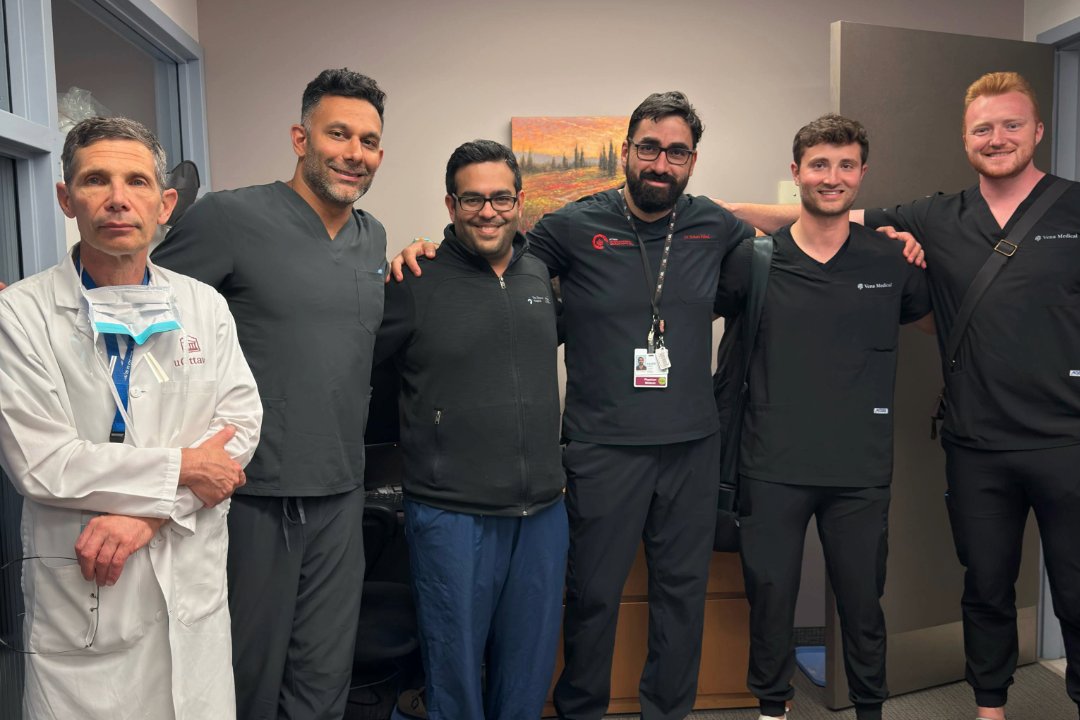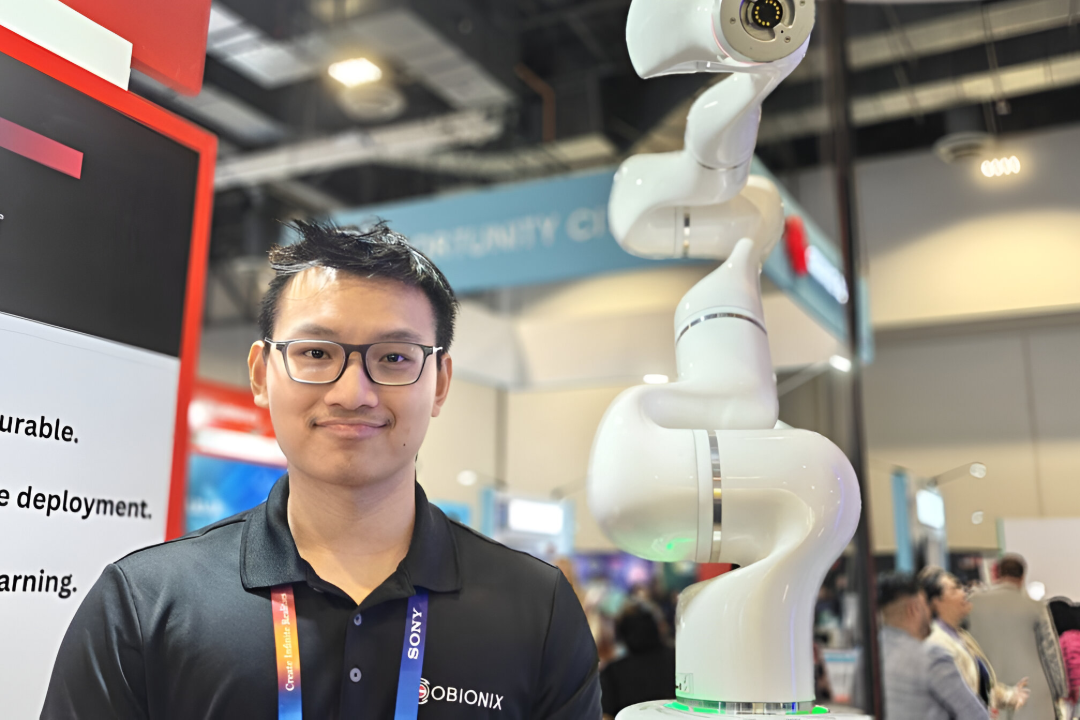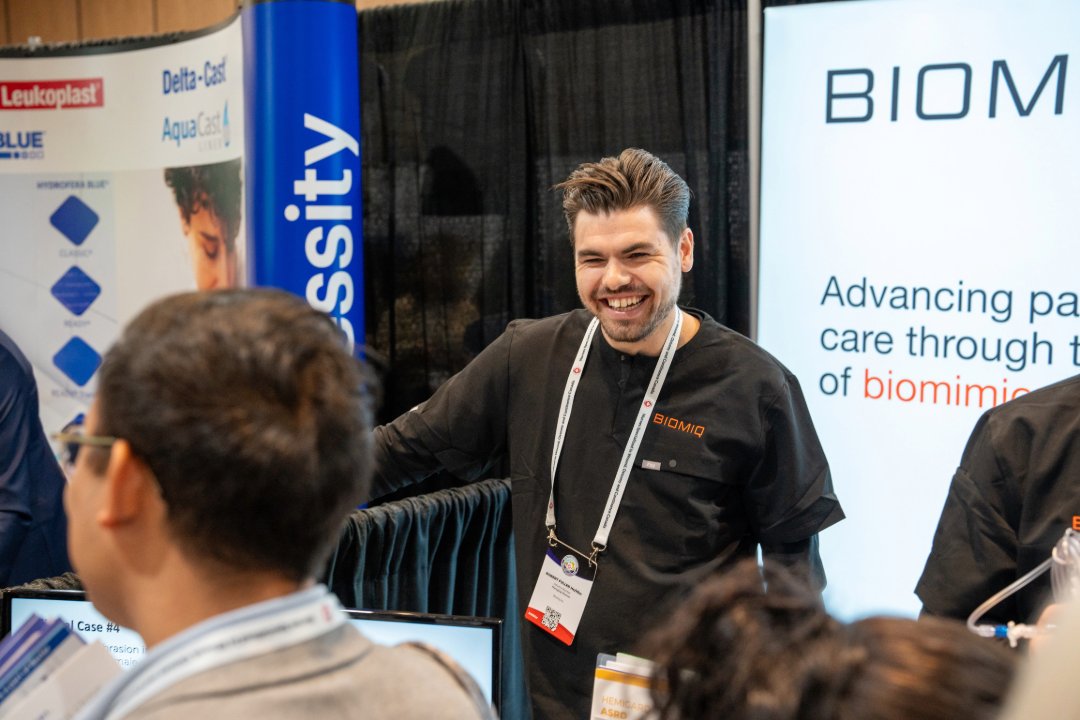
MIX Profile: Michael Phillips, Co-founder and CEO of Vena Medical
The last six months have been nothing short of transformational for Vena Medical. The company received FDA Breakthrough Device designation earlier this year for its MicroAngioscope intravascular camera, an innovative technology that gives surgeons a direct point of view inside blood vessels.
In addition to the FDA designation, Vena Medical’s second-generation camera was awarded approval by Health Canada. Michael Phillips, co-founder and CEO of Vena Medical says the camera has been used in 30 surgeries to date.
“It’s been a slog, for sure. But these last six months have moved very fast. Everything fell into place, the physicians are loving it, and we’re getting great results with patients,”
From classrooms to operating rooms
Vena Medical’s origins go back to 2016, when Phillips and co-founder Phillip Cooper were still engineering students at the University of Waterloo. The idea for Vena’s camera came from speaking with Cooper’s father who works as an interventional radiologist.
“He performs these procedures where they use an X-ray and little wires and tubes through your veins and arteries to treat all kinds of different diseases. And so it was his idea originally,” Phillips recalls.
Interventional radiology involves minimally invasive, image-guided vascular procedures that are performed in an angiography suite at a hospital. Phillips and Cooper spent time in an angiography suite watching procedures, where they quickly realized there were gaps in the tools available to physicians.
“One thing that just kept consistently coming up when we spoke with clinicians was they felt like they didn’t have enough information to make a clinical decision using the images that they have,” says Phillips. “It seemed very logical that if we could provide them with something small enough and flexible enough, that we could solve those problems for them.”
That inspiration led to the development of a camera capable of providing clear, direct images from inside blood vessels. It’s a step toward making angioscopy the gold standard in interventional care, similar to how scopes replaced X-ray for colonoscopies.
Impacting patient care in real time
While the technology has taken years of R&D, its clinical impact is already being felt.
“The physicians are telling us they wouldn’t have known that this patient had this sort of lesion or this sort of disease without our camera,” Phillips says. “They’ve been using X-ray to see what they’re doing, but they’re just black and white shadows. We’re giving them a point of view from inside the blood vessel itself.”
The Vena team has been present in the operating room for multiple procedures where the camera is being used. Watching surgeons work with the camera in real time has provided not only validation, but invaluable feedback.
“Seeing how we’re changing the way physicians are treating patients is extremely rewarding. It’s why we do this,” Phillips says.
Growing with the ecosystem
The startup’s early development was supported by the University of Waterloo’s Velocity Science program, where they had access to lab space, peers, and mentorship. From there, they advanced through accelerators including the Texas Medical Center HealthTech Accelerator (formerly TMCx) and Y Combinator, before returning to Canada.
“We knew Canada, and especially Waterloo, is really conducive to R&D,” Phillips says. “We get really good access to talent, we have programs like SR&ED tax credits, and life and work are generally less expensive here than in Texas or the Bay Area.”
Vena Medical joined MIX in 2019 as one of its founding members.
“Being at MIX gives us access to people who have been there and done that. If we don’t know the answer, we can go across the hallway and talk to someone at Intellijoint or FluidAI,” Phillips says.
Building manufacturing excellence in Waterloo
As Vena Medical scales, Phillips and his team are beginning to bring more and more of their manufacturing processes in-house.
“We do a lot of our manufacturing in the US right now, and we’re excited to start reshoring some of the key processes,” Phillips explains. “We’re going to add a clean room here at MIX soon. We’re hoping to create a lot of high-value jobs.”
By building advanced manufacturing capabilities in Waterloo Region, Vena Medical will not only strengthen its supply chain but also contribute to the region’s growing reputation as a hub for medtech innovation.
Lessons for fellow founders
Reflecting on Vena’s nearly 10-year journey from student project to clinical use, Phillips says perseverance has been key.
“Hardware is hard. It takes forever,” he says.
His advice for other founders is to lean on the community and be ready for the long road.
“You need to surround yourself with people who have been there before. Whether it’s other founders at MIX or mentors from Velocity, we’ve learned so much from peers,” Phillips says. “If you’re going to tackle something as complex as medtech, you have to be patient, persistent, and willing to put in the time. The breakthroughs don’t happen overnight. But when you see your product in action, it makes all the work worth it.”



